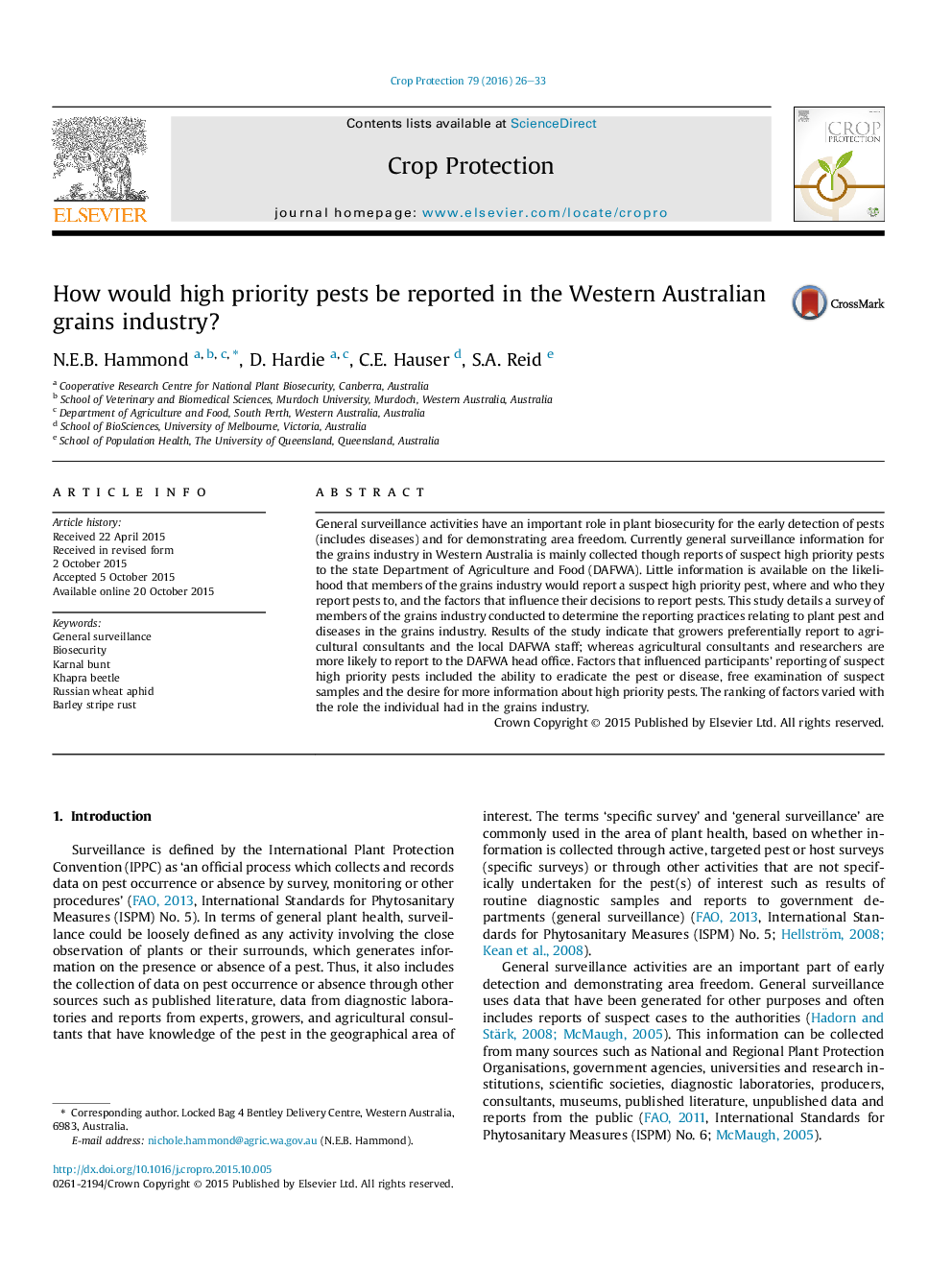| Article ID | Journal | Published Year | Pages | File Type |
|---|---|---|---|---|
| 4505609 | Crop Protection | 2016 | 8 Pages |
•General surveillance activities have an important role in plant biosecurity.•Growers preferentially report plant pests to agriculture consultants.•Consultants and researchers report to state Department of Agriculture and Food.•Ability to eradicate and free sample examination were factors in decision to report.•Respondents wanted more information about high priority grains pests.
General surveillance activities have an important role in plant biosecurity for the early detection of pests (includes diseases) and for demonstrating area freedom. Currently general surveillance information for the grains industry in Western Australia is mainly collected though reports of suspect high priority pests to the state Department of Agriculture and Food (DAFWA). Little information is available on the likelihood that members of the grains industry would report a suspect high priority pest, where and who they report pests to, and the factors that influence their decisions to report pests. This study details a survey of members of the grains industry conducted to determine the reporting practices relating to plant pest and diseases in the grains industry. Results of the study indicate that growers preferentially report to agricultural consultants and the local DAFWA staff; whereas agricultural consultants and researchers are more likely to report to the DAFWA head office. Factors that influenced participants’ reporting of suspect high priority pests included the ability to eradicate the pest or disease, free examination of suspect samples and the desire for more information about high priority pests. The ranking of factors varied with the role the individual had in the grains industry.
